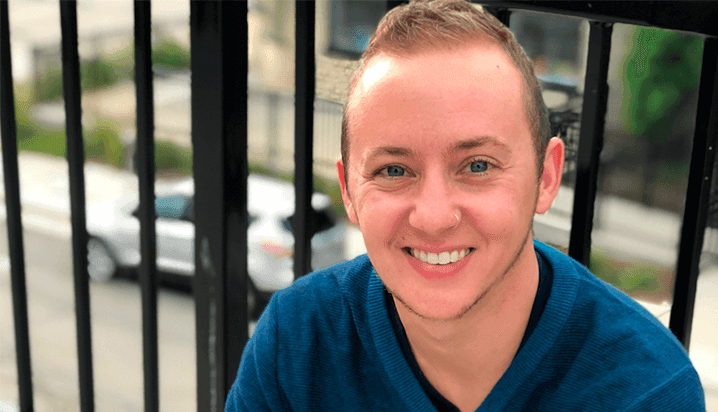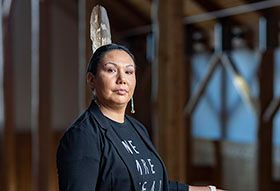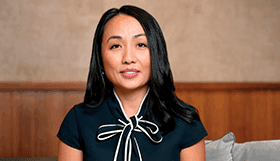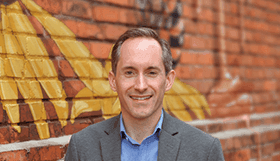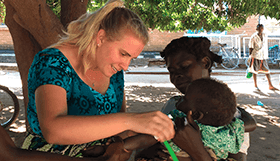UW Major: Social Work
Age: 31 | Madison
Art Therapist and Social Justice Consultant, Center for Community Healing
Through art therapy and advocacy, Owen Karcher helps people find health in body, mind, and spirit.
Karcher is a co-owner
of the Center for Community Healing, a counseling practice that often serves
clients who identify as lesbian, gay, bisexual, transgender, queer, or
questioning (LGBTQ+). He specializes in therapy for people who have experienced
trauma, such as domestic or sexual violence, and he also offers services
in both English and Spanish.
Art therapists may encourage clients to sculpt, paint, or draw emotions as a way of processing traumatic experiences, gaining insight, and promoting healing.
The center is located on Madison’s west side, but Karcher knows the need for culturally competent care isn’t limited to the state’s capital city.
“By offering
individual and family therapy, as well as education and training to other care
providers,
I hope to contribute to making high-quality, holistic health care available for
all LGBTQ+ people in the state of Wisconsin,” Karcher says.
As an artist, advocate, and educator, Karcher extends his multitude of talents to grow awareness about the need to provide people who identify as LGBTQ+ with equitable health care services and affirming community spaces. In 2013, he helped establish the Wisconsin Transgender Health Coalition. He frequently delivers presentations and workshops about accessibility and inclusion to universities, hospitals, businesses, and nonprofits. Karcher is also a Spanish bilingual advocate and a member of the Latino Health Council in Dane County.
Many of Karcher’s personal and professional pursuits are inspired by his time at the UW, where he says he strengthened his understanding of social justice and his passion for public service.
“I began my undergraduate career uncertain of who I would become but certain of my desire to help people,” Karcher says. “I also learned that helping people, while important, is not the end goal. Cocreating communities where all people can thrive and participate is the goal.”
Photo by Chelsea O’Neil Karcher
Q&A with Owen Karcher
What’s the best piece of advice you’ve ever received?
Two things come to mind. My friend Dr. Sheltreese McCoy reminded me of the importance of listening to a partner and making sure they have enough time in relationship. She always gave me a lot to think about when we discussed anything. She was fierce in her love and rigor in fighting for queer and trans people of color, and she pushed me to be more conscious of how I showed up as a white person in relationships. She helped me see the necessity of learning how to feel what it means to be white and to hold sacred the responsibility of witnessing and feeling with those experiencing racism.
What are you reading now?
Right now I’m reading Creative Quest by Questlove. I plan to pick up Trauma Stewardship next.
What is the one thing every UW student must do?
There are so many ways to get involved at the UW. Every student should at least try one way to get involved, whether it’s through sports, volunteering, advocacy, or activism. Each student should work to expand beyond their bubble of people they know.
What advice would you offer to graduating seniors?
Consider your impact on the world. Strive to do well, not just for yourself or people like you, but for everyone in your community.
What occupies your free time?
I spend a lot of time with my family. I am also a novice woodworker, so I spend a good amount of time making furniture and other things out of wood. I also volunteer quite a bit.
What was your first job?
I worked at Dairy Queen when I was 14, but before that I mowed lawns and babysat for neighbors. Once my grandma got me a job running tours of the oldest lighthouse in the Midwest.
Who is your hero, or who or what inspires you?
My partner, Chelsea, inspires me daily. She is always learning and growing and has the biggest heart. I learn a lot about how to care for people by watching her.
What’s next for you?
We are expanding our Center for Community Healing by adding another practitioner. This will allow us to serve even more people and have some more room for collaborations and trainings.
